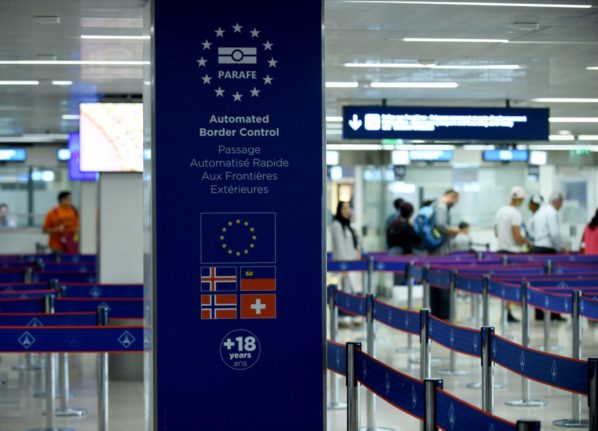Question: My partner and I are leaving Italy after several years of living here. Do we need to cancel our residency? If so, can you advise us on how to go about doing this?
Most people know that you need to register as a resident in Italy if spending more then 90 days in the country. But what should you do if you decide to leave?
Do foreign nationals need to deregister as a resident, and under which circumstances? And how do you go about doing cancelling your residency?
We asked the experts to talk us through when you should deregister as an Italian resident and the the steps involved in cancelling your Italian residency.
Should you bother cancelling your residency?
As is so often the case when it comes to complex bureaucratic questions, the answer is, it depends: both on your personal circumstances and on the type of residency permit you hold.
If you’re relocating away from Italy permanently then deregistering as a resident and informing the authorities of your new address is a legal requirement – and you’d want to do so anyway, says Nicolò Bolla of the tax consultancy firm Accounting Bolla.
READ ALSO: What’s the difference between Italian residency and citizenship?
On the other hand, if you’re moving away on a temporary basis, you’re not required to cancel your Italian residency.
“If, for instance, you undertake a two-year assignment somewhere, you can still remain a resident and benefit from all the coverage a resident has, such as healthcare,” Bolla explains.

There’s no official time limit for this – you could leave Italy for a number of years while maintaining your residency and then return to live in the country as if there had been no break.
That means that if you’re leaving Italy and aren’t sure whether you want to return, you might want to keep your residency status, at least in the short term (it’s possible to be legally resident in both Italy and another country).
Financial planning and property consultant Daniel Shillito warns: “you want to be sure if you’re leaving the country that it was a permanent decision, and that you weren’t aiming to come back to live – because if you do want to, it could be tricky and quite administrative.”
For British citizens in particular, he points out, “having an Italian residency these days is a valuable thing, it’s not easy to get again.”
This all applies to those with permanent or long-term residency.
If you have a temporary residence permit, you will no longer be considered resident in Italy as soon as it expires – so you may decide it’s not worth bothering to cancel your residency if it’s due to expire anyway shortly after you leave.
Why does it matter?
There are multiple factors to consider here, the biggest of which is taxes.
If you’re resident in Italy, you’re expected to pay taxes here. However, if you’re moving to a country with which Italy has a double taxation agreement or dual tax treaty, you’re protected from being taxed twice on the same income. Many states, including the UK, America, Australia and Canada, have dual taxation treaties with Italy.
READ ALSO: Can second-home owners get an Italian residence permit?
If you’re moving to a country which doesn’t have a double tax agreement with Italy, on the other hand, you’ll be legally required pay the full amount of Italian tax on your income even if you spend very little time in Italy, so will almost certainly want to cancel your residency.
Even if you’re moving to a country that does have a dual tax treaty with Italy, you may still want to deregister as an Italian resident in order to avoid having to deal with the paperwork involved in proving you’re a dual resident whose tax obligations are limited.
There’s also a third category of emigrant: for those moving to a country on the EU’s tax haven blacklist, such as Panama, simply deregistering as an Italian resident won’t keep the tax authorities at bay. The burden of proof is on the individual to demonstrate they actually reside in the blacklist country and aren’t just trying to evade Italian taxes.
In these situations, Bolla advises clients to register as resident in an intermediate third country after leaving Italy and before moving to the blacklisted country in order to avoid the extra bureaucracy.
READ ALSO: What taxes do you need to pay if you own a second home in Italy?

Other considerations
Besides where you pay your income tax, you’ll want to consider other factors such as official correspondence, tax breaks, and timeframes for residency-based citizenship applications, Bolla says.
If you maintain Italian residency, the authorities will expect to be able to reach you at your registered address, including for things like traffic fines or notifications of tax audits. If you no longer have any link to that address and no one to forward your correspondence on to you, you could end up in a sticky legal situation.
It’s also worth taking into account the fact that new Italian residents can access certain tax breaks that aren’t available to people who’ve lived here for a while. If you cancel your residency and then return to Italy at a later date, you’ll be eligible for those incentives in a way that you wouldn’t be if you’d kept your residency.
On the other hand, Bolla notes, maintaining Italian residency could work in favour of those interested in pursuing citizenship through residency.
An individual must be continuously resident in Italy for 10 years before they can apply for Italian citizenship based on their long-term residence status.
In theory, maintaining your Italian residency while you’re temporarily abroad could mean that period still counts towards towards those ten years and you won’t have to restart the clock on your return – though it’s important to consult a professional if you’re considering this option.
How can you go about cancelling your residency?
There’s no standardised national protocol for cancelling your residency. Instead, you’ll need to contact the comune, or town hall, you’re registered with to inform them of the change and ask them what you need to do.
The process could be as simple as sending a few emails, without even having to set foot in the building. There may also be a form to fill out. Because things vary from one municipality to another, you’ll need to contact your local comune to find out exactly what’s required.
Generally the process can only be completed after, not before, leaving the country, because you’ll need to provide your new address and possibly supporting documentation proving that you’re now resident elsewhere.
“You say me and my family – and then you list all the members – are no longer residing in your town, please deregister us, and our new address is (e.g.) 123, Fifth Avenue, New York,” says Bolla.
If you have a Spid (Sistema Pubblico di Identità Digitale or ‘Public Digital Identity System’) electronic ID, Bolla notes, in many towns and cities (such as Milan), the process can be completed online through the comune‘s website.
You should expect to receive confirmation that you and your dependents have been deregistered as Italian residents, so it’s worth following up until you receive this.
READ ALSO: How to use your Italian ID card to access official services online
Shillito advises using a PEC (Posta Elettronica Certificata, or Electronic Certified Mail) email account if you have one when communicating with your comune about deregistering.
Messages sent between PEC accounts are certified with a date and time stamp to show when you sent them and when they were received, with a record of receipt automatically emailed to you as an attachment. Within in Italy they have the same legal value as a physical lettera raccomandata (registered letter).
“That secure email communication is official, you’ve got a receipt showing it’s been received,” says Shillito.
“That way you’ve got evidence and a record that you’ve communicated it to them, in case anything went wrong in the future and the Italian government decided to claim you were still living in Italy.”



 Please whitelist us to continue reading.
Please whitelist us to continue reading.
Member comments